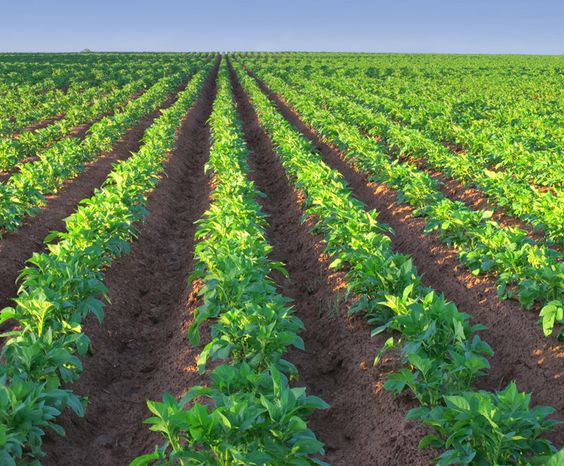Steering the Plow in the Digital Age: How Agribusiness Management Propels Smart Agriculture
Agribusiness Management sector is undergoing a seismic shift. Gone are the days of relying solely on intuition and tradition. Today, a new wave of innovation, aptly named Smart Agriculture, is transforming how we cultivate crops and raise livestock. This data-driven approach leverages cutting-edge technologies to optimize resource utilization, maximize yields, and ensure long-term sustainability. But for Smart Agriculture to truly flourish, it needs a strong guiding hand: Agribusiness Management.
Contents
The Marriage of Precision and Profitability
Agribusiness Management serves as the bridge between Smart Agriculture’s technological prowess and the practical realities of running a successful farm. It involves employing data collected from sensors, drones, and other digital tools to make informed decisions regarding every aspect of the agricultural operation. This includes:
- Resource Management: Smart irrigation systems, soil moisture sensors, and weather data analysis allow for the precise application of water and fertilizers, minimizing waste and maximizing efficiency.
- Crop Monitoring: Real-time insights into plant health through drone imagery and spectral analysis enable early detection of pests and diseases, facilitating targeted interventions before significant damage occurs.
- Livestock Management: Precision feeding systems and animal tracking devices optimize feed utilization, improve animal welfare, and provide valuable data for breeding programs.
- Market Analysis: Big data analytics provide real-time information on market trends, commodity prices, and consumer preferences, allowing producers to tailor their production strategies for optimal profitability.
The Agribusiness Manager: Conductor of the Digital Symphony
Agribusiness Management, equipped with a blend of agricultural expertise and technological know-how, are the driving force behind the successful implementation of Smart Agriculture. Their responsibilities encompass:
- Data Integration and Analysis: Skilled at interpreting complex data sets, agribusiness managers can identify patterns and trends to make informed decisions about resource allocation, pest control strategies, and harvest timing.
- Technology Adoption and Implementation: With a keen understanding of available technologies, these managers can choose the right tools for the job, ensuring seamless integration into existing farm operations.
- Risk Management: By using data-driven forecasts, agribusiness managers can anticipate potential challenges such as weather fluctuations or market downturns, and develop mitigation strategies to minimize losses.
- Communication and Collaboration: Building strong relationships with researchers, technology providers, and government agencies is crucial for staying abreast of the latest advancements and ensuring resource optimization.
Building a Future-proof Agribusiness
The potential benefits of Smart Agriculture, powered by effective agribusiness management, are vast:
- Increased Productivity: Data-driven decision-making leads to efficient resource utilization and improved crop yields for both plant and animal agriculture.
- Enhanced Sustainability: Precision agriculture minimizes environmental impact by reducing water and fertilizer waste, promoting soil health, and promoting biodiversity.
- Improved Profitability: Smartly managed farms experience reduced operational costs through targeted resource allocation and optimized market positioning.
- Empowering Farmers: Data empowers farmers to make independent, well-informed decisions, fostering a sense of control and a more autonomous working environment.
Challenges and Considerations on the Road to Digitalization
While the potential of Smart Agriculture and agribusiness management is undeniable, some hurdles need to be addressed:
- Technological Integration: Implementing new technologies can be a complex process for farms with limited resources or technical expertise. Training and support programs are critical for facilitating a smooth transition.
- Data Security: Protecting sensitive data on crop yields, animal health, and market trends is paramount. Investing in robust cybersecurity measures is a non-negotiable expense.
- Connectivity Concerns: Rural areas often have limited or unreliable internet access, hindering the full potential of data-driven farming practices. Infrastructure upgrades are essential for widespread Smart Agriculture adoption.
Investing in Tomorrow’s Harvest
Embracing Smart Agriculture, guided by effective agribusiness management, is an investment in the future of agriculture. By leveraging technology, data analytics, and innovative practices, we can not only ensure food security for a growing population but also create a more sustainable and profitable agricultural sector for generations to come. As the agricultural landscape evolves, agribusiness managers adept at navigating the digital frontier will be at the forefront of this exciting new era, shaping a future where technology and tradition work hand-in-hand to nourish the world.
Conclusion Agribusiness Management
The future of Agribusiness Management is not simply about growing crops; it’s about harnessing the power of data and technology to cultivate a smarter, more sustainable, and more profitable agricultural landscape. Agribusiness managers, armed with the knowledge and skills to navigate the world of Smart Agriculture, are the key players in this transformation. By embracing innovation and fostering collaboration, we can ensure that agriculture continues to be the cornerstone of a thriving global economy, meeting the needs of today while safeguarding the resources of tomorrow.




